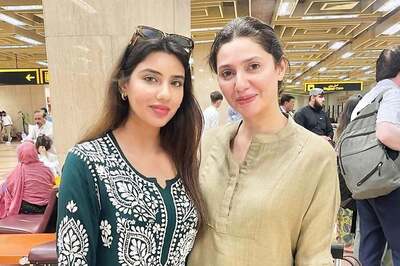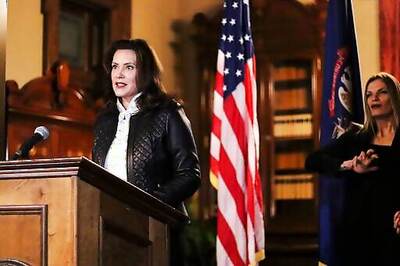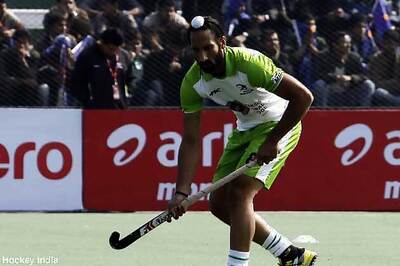
views
The Congress survived the scare of losing Jitin Prasada but the threat of some young and promising party leaders switching sides or joining the BJP is real. The grand old party needs to ponder why leaders like Prasada even contemplated joining the rival camp.
It was timely intervention by Jyotiraditya Scindia who saved the day, at least for the time being. Scindia, in charge of Uttar Pradesh’s western region, reportedly got in touch with Prasada, literally minutes before the former Union minister of state was set to join the BJP. The former maharaja was not only at his persuasive best but promised to look into some of the grievances that Prasada was harbouring.
It is believed that Prasada, Congress nominee from Dhaurahra, was upset with the choice of party nominees from neighbouring Sitapur and Lakhimpur Kheri seats, where the Congress has fielded Qaisar Jahan and Zafar Ali Naqvi respectively. When he had reportedly raised the issue, he was offered Lucknow where Union home minister Rajnath Singh is in the fray. The cheeky “offer” is said to have infuriated and antagonised Prasada further.
A section of Congress leaders attributes “history” to Prasada’s sense of disillusionment. This formulation is a bit rich to swallow. After all, Prasada has been in Rahul Gandhi’s inner circle of friends since 2004 when the two young dynasts entered the Lok Sabha. He was given many important assignments, including a ministerial berth in Manmohan Singh’s council of ministers. There is no plausible reason for him to recall events that had taken place almost two decades ago and when he was not in politics.
However, for the sake of accuracy and public interest, it is pertinent to remember what happened between September 2000 and January 2001 when Prasada’s father Jitendra Prasada died at a young age. Jitendra was Rajiv Gandhi’s political secretary. Post Rajiv’s assassination, Jitty Bhai, as he was popularly addressed in Congress circles, moved close to PV Narasimha Rao and became his confidant from 1991 to 1996. Jitty Bhai’s proximity to Rao was not appreciated by 10, Janpath and its cheerleaders like Arjun Singh.
When Jitendra Prasada died on January 16, 2001, he was totally disillusioned with the Congress and the Gandhis in particular. Jitendra had contested against Sonia Gandhi for the Congress president’s post in the organisational polls that took place in November 2000. Few will be aware that Jitty Bhai had, in fact, become victim of a palace intrigue of sorts when he was forced to take on Sonia in the party polls.
Marginalised in Sonia’s Congress, Jitendra Prasada was initially teaming up with Rajesh Pilot to start a low-key rebellion in the guise of inner-party democracy. The real motive of the exercise was to check Arjun Singh and Madhavrao Scindia, who were calling the shots in the Sonia regime. Some disgruntled party leaders from Odisha, the North-East and Uttar Pradesh, along with those outside the Congress who felt threatened by the rise of Sonia, quickly began supporting the Prasada–Pilot team. Pilot, however, died in a freak road accident. In his absence, all eyes turned to Jitendra Prasada. But he lacked the vibrant, clean image that could generate mass support. Jitty Bhai was fond of his food, [he was a generous host too] drink and poetry.
Coming from a distinguished family in the princely state of Shahjahanpur, Prasada’s manners were those of a Lucknowi nawab — he had in fact studied at Lucknow’s Colvin Taluqdar College which was once exclusively meant for wards of nawabs and court officers, or taluqdars. He took pride in his family’s ties with India’s most famous poet, Rabindranath Tagore. Prasada cut his political teeth under Rajiv from 1985 to 1989 when he served as Congress general secretary and Rajiv’s political secretary. He retained the prized post when Rao became all-important between 1991 and 1996. Under Rao, the Brahmin from Uttar Pradesh had his task cut out for him. He was expected to keep leaders like Arjun Singh, Narain Dutt Tiwari, Mohsina Kidwai and Sheila Dikshit under check. Prasada did that with all the resources at his command, but in the process, the Congress lost its roots in Uttar Pradesh, the state which mattered most in the country’s politics due to its sheer size and population. Once the Congress lost its control over those 85 parliamentary seats in the 543-member Lok Sabha, it could never get a clear majority to form a government of its own at the national level.
Prasada, however, miscalculated the political situation while taking on Sonia. He had no illusions about his prospects of defeating Sonia in an election that was tilted heavily in her favour. The entire election machinery was in her hands, including that of picking poll observers and returning officers. Prasada believed that Sonia would ask him to withdraw from the fray and reward him with a senior position in the party. Leaders like Natwar Singh and Digvijaya Singh who were projecting themselves as peacemakers, cemented this line of thinking. But some leaders in the Sonia camp, namely Arjun Singh and Vincent George, had other plans. These leaders argued that the tag of elected party chief would go a long way in consolidating Sonia’s position in the organisation.
Prasada had no option but to take on Sonia. All AICC functionaries were asked to drum up support for Sonia. In Bhopal, Hyderabad, Jaipur and a few other places where Jitty Bhai toured as part of his campaigning, he was greeted with locked doors at the Pradesh Congress Committee (PCC) offices and black flags. A tense Prasada looked for a way out. Meanwhile, the peacemakers shuttled between his house and 10, Janpath, claiming to be working on some formula that was non-existent.
As the date for withdrawal of names drew nearer, Jitty Bhai waited in vain for a call from 10, Janpath, offering a face-saving, last-minute withdrawal. Humiliated and marginalised, Jitty Bhai realised that his gambit had failed. Accompanied by a handful of leaders from Uttar Pradesh, Prasada filed his nomination papers and was humbled in the party polls as Sonia went on to get nearly 99 per cent of the votes. The peacemakers and many of those who had encouraged Prasada to teach Sonia a lesson were nowhere in sight. Prasada did not recover from the trauma of defeat. A few months later, he suffered a brain haemorrhage and died. The man who knew so much about palace intrigue became one of its worst victims.
Defections are a reality in India's political arena. But potential defectors need to take a pause and ponder over the famous scene from 'Man for All Seasons' where Thomas More confronts his betrayer Richard Rich, who was made Attorney General for Wales for falsely testifying against him: "Why Richard, it profits a man nothing to give his soul for the whole world... but for Wales?"
(Rasheed Kidwai is a visiting Fellow with the Observer Research Foundation (ORF). Views are personal)


















Comments
0 comment